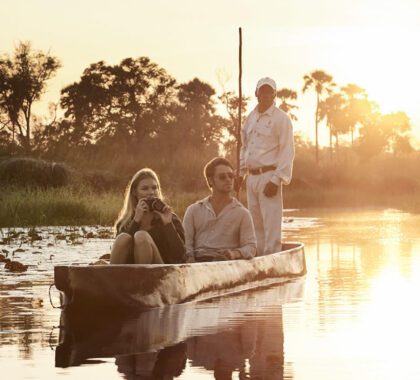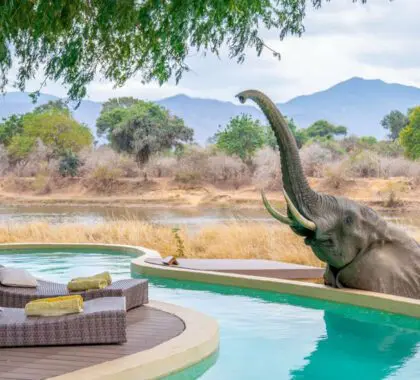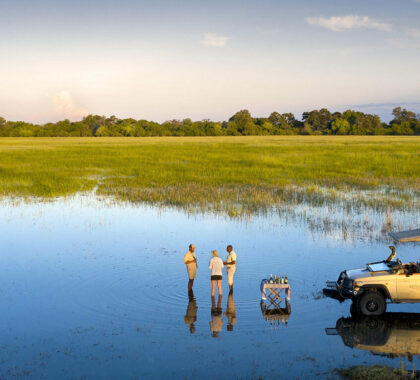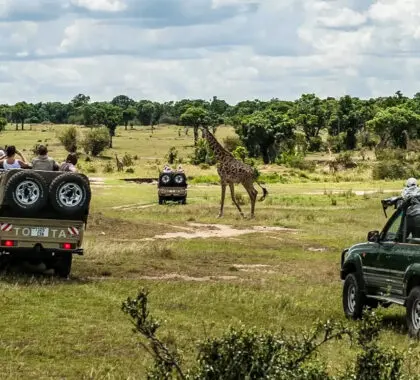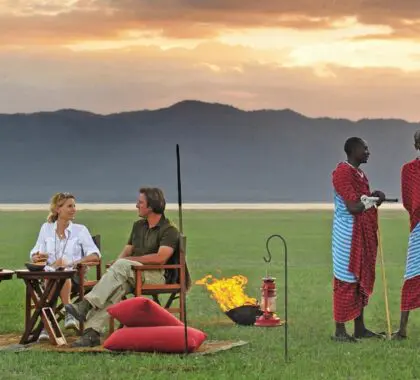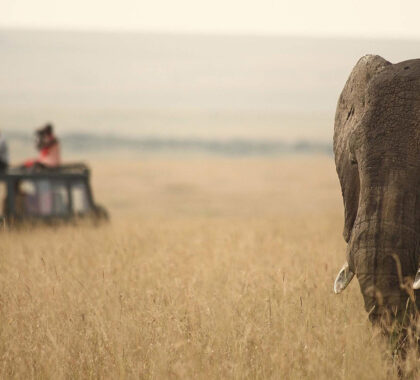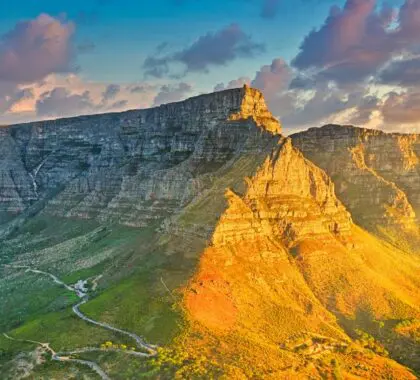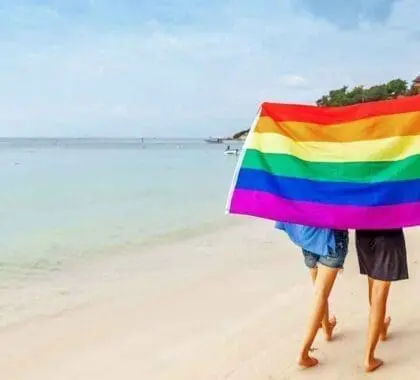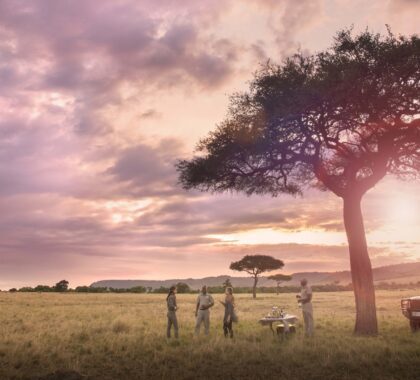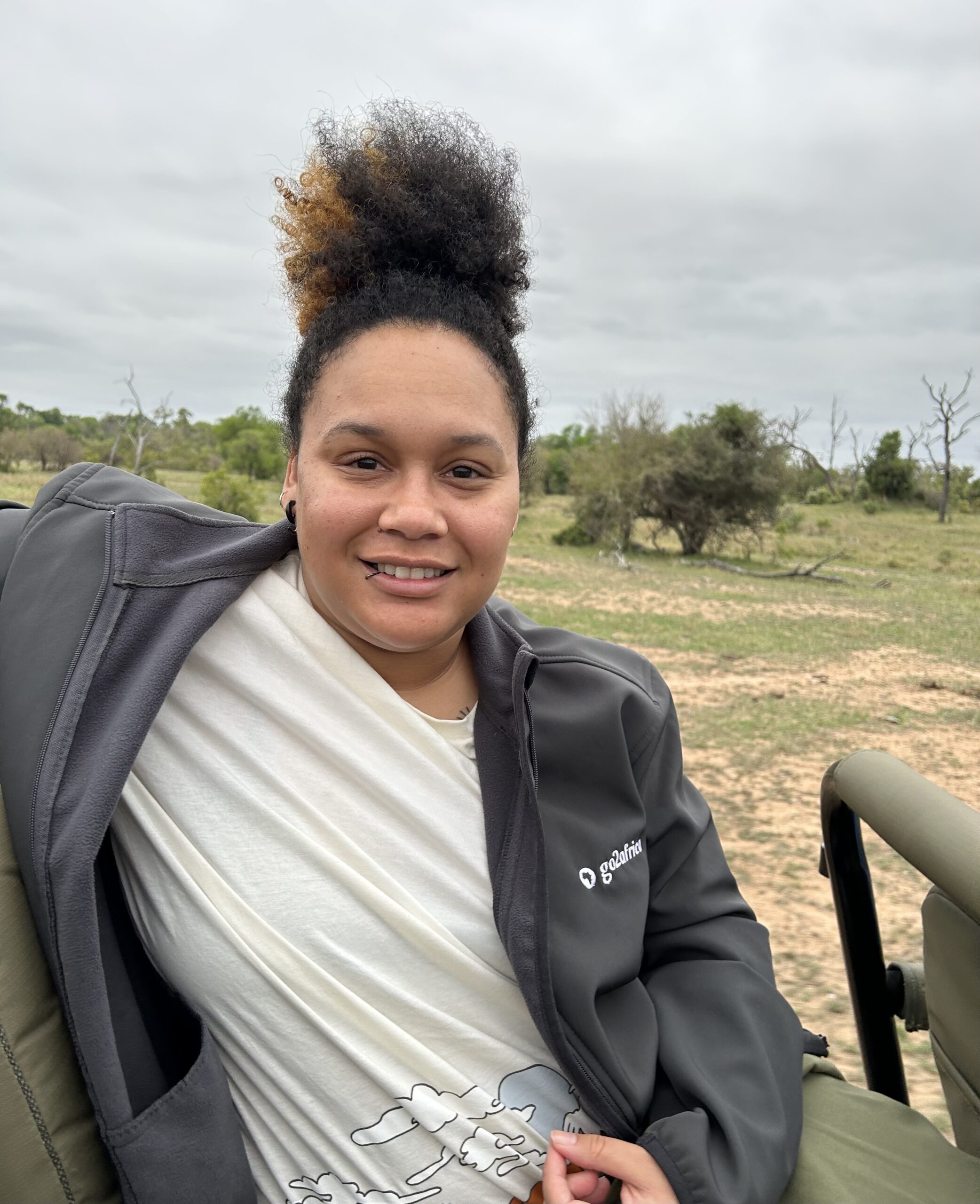Estimated reading time: 12 minutes
The Lesbian, Gay, Bisexual, Trans and Queer (LGBTQ) community plays a substantial role in the international travel industry. Before 2020, LGBTQ travellers from the USA contributed US$63.1 billion annually on travel. LGBTQ travellers were also instrumental in the recovery of global tourism. Put simply, gay people love travelling, but it requires a lot of research for them to do so safely and comfortably.
Today, there are still 64 countries around the globe that have anti-gay laws in place. Fortunately, there is light at the end of the tunnel – especially in Africa. There is a global trend toward the acceptance of LGBTQ people and decriminalising same-sex relations, and Africa is slowly but surely following suit. While the world catches up to being more accepting, there are plenty of destinations throughout the continent where LGBTQ families, couples, groups or singles can enjoy a gay-friendly African safari.
This process becomes much easier and smoother when you add the benefit of having an Africa Safari Expert who has first-hand experience in creating tailor-made itineraries for LGBTQ travellers visiting the continent – with you from the beginning of your journey right through to when you travel home.
We’ve put together a guide of LGBTQ travel advice for safaris in Africa to ensure you have a great trip:
Go2Africa Disclaimer
We at Go2Africa want there to be no ambiguity about where we stand on this issue. Go2Africa does not approve of any anti-LGBTQ laws or prejudiced public opinions on the continent. The company and every single one of its staff members, from our Africa Safari Experts to the CEO and support teams, have the utmost respect, acceptance and support for the LGBTQ community. No prejudice or hate is tolerated, and we strive to create an inclusive environment where people from all backgrounds, cultures, genders and sexualities are safe and well taken care of.
For over two decades, Go2Africa has organised tailor-made safari itineraries for many LGBTQ clients and educational trips for staff members who identify as part of the community. Our primary concern is the safety and comfort of all those who choose to travel with us. Every supplier and property we work with is run by people who are accepting and welcoming of all people and who employ staff that treat every guest with respect and kindness.
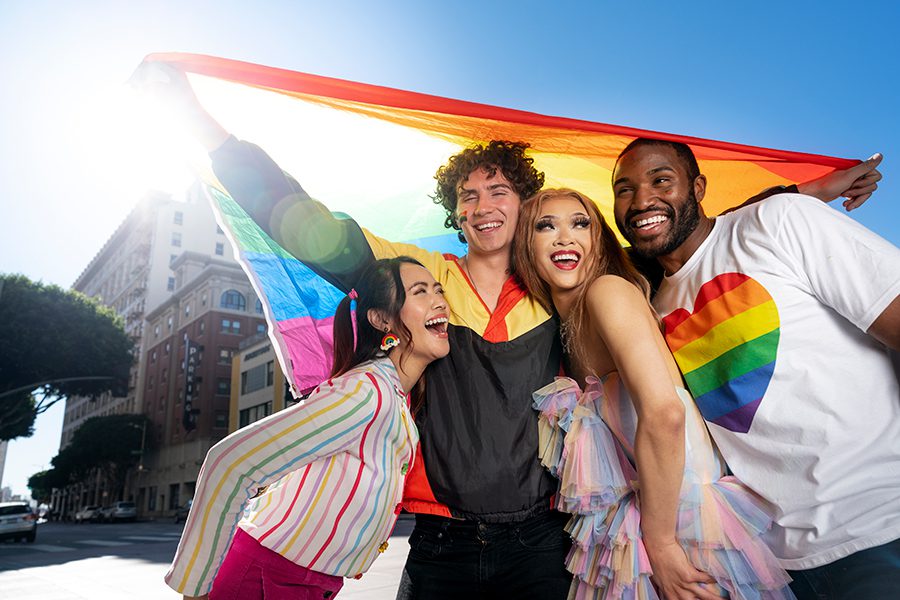
FAQs About LGBTQ Travel Safety in Africa
1. Is Africa Safe for Gay Travellers?
Yes, safari destinations in Africa are perfectly safe for LGBTQ travellers, despite only 23 of 55 recognised states legalising same-sex relationships. Whether you’re visiting progressive South Africa or conservative Uganda, our African Safari Experts will never put you in a position where you will be unsafe. The safari lodges, camps and resorts that you’ll be booked into are run by friendly and accepting staff who welcome and treat all visitors exactly the same, no matter their background.
As with anywhere in the world, there will always be people who are intolerant of or prejudiced against LGBTQ people in Africa. But you will be just as safe and comfortable on a safari as you would on any other vacation.
2. Is Africa Safe for Trans and Non-Binary Travellers?
Yes, Africa can be a very safe travel destination for trans and non-binary travellers, especially when visiting South Africa, a country that has one of the most progressive constitutions in the world.
Although more and more countries around the globe are becoming more accepting and welcoming of LGB people, trans and non-binary individuals still bear the brunt of intolerance and harassment. Travelling can be daunting if you identify as anything other than cisgender – especially when your chosen destinations aren’t yet tolerant of homosexuality.
Fortunately, you don’t have to scrap your travel plans to Africa, as you can still enjoy safari experiences in Southern and East Africa in safety and comfort as a trans or non-binary person. Your African Safari Expert will create a tailor-made itinerary that considers your unique situation and will never knowingly place you in a position where you would experience any danger.
3. Is Africa Safe for Women?
Yes, women are completely safe when on safari in East or Southern Africa. Women are often perceived as being more vulnerable and weaker than their counterparts and usually find themselves at the receiving end of harassment, sexism, misogyny, and unwanted sexual advances. We wish we could say that while in Africa, there is zero chance of women being subjected to this treatment, but like everywhere else, there is a possibility that you might encounter this issue.
What we can say is that it’s unlikely to happen while on safari. Whether you’re two women in a loving relationship, a group of friends on a girls’ trip, or travelling solo through Africa Eat, Pray, Love-style, you can rest assured that you’ll be safe and treated with the utmost respect by all staff, from the concierge to your guide and tracker. Additionally, some of the lodges and camps are situated in remote and far-flung regions away from major cities – which contributes to a safer environment.
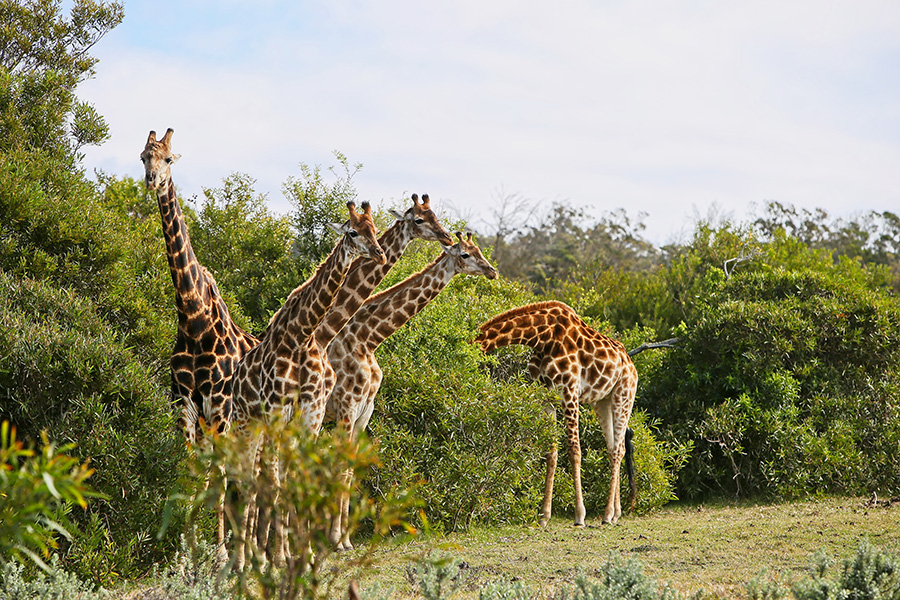
4. Is It Illegal to Be Gay in Africa?
Same-sex relationships are illegal in 32 African countries, including Uganda, Kenya, Tanzania, Zimbabwe and Zambia. However, it is safe for LGBTQ travellers to visit these destinations, as police authorities in these countries pay little attention to foreigners. As long as you refrain from displays of affection in public spaces and remain discreet about your sexuality and gender identity, you will have nothing to worry about on your safari trip.
5. Should I Avoid Anti-LGBTQ Countries in Africa?
The answer to this isn’t as black-and-white as you might think. On the one hand, it’s easy to dismiss these countries as ‘backwards’ towards people who stray from heteronormativity. However, the situation is more complex than that.
Many African countries rely heavily on tourism. Travellers contribute millions to these economies every time they book a trip to see the Great Wildebeest Migration in the Masai Mara or Serengeti or track gorillas in the misty rainforests of Uganda. As a result, thousands of livelihoods depend on tourism. And working with people from all over the world, the majority of these individuals are open-minded and accepting of those that identify as LGBTQ and disagree with the anti-gay laws and public outlook of their countries.
Not to mention that every country with anti-gay laws is also home to growing communities of LGBTQ locals. Pride parades and organised protests are happening every day to alter public perception and prejudiced laws. Change is afoot in the big cities of Africa and the tide is turning, albeit at a snail’s pace.
In all truth, Africa is no more anti-LGBTQ than the deep South of the USA or Brazil and people still travel to both these places. But at the end of the day, the choice is entirely yours whether to support the tourism industries in these African countries. There is no wrong or right answer.
6. How Cautious Do I Need to Be When Travelling as an LGBTQ Person?
The internet would have you believe that you’ll be arrested and thrown in a jail cell for being LGBTQ the minute you land on African soil. That is far from true! Not much precaution needs to be taken – even in countries with anti-LGBTQ laws.
Truthfully, a great number of people who identify as LGBTQ have travelled to holiday destinations in Africa and it is extremely rare for travel agents to receive any negative feedback from these clients. That’s not to say that there haven’t ever been issues – but it’s certainly not the norm.
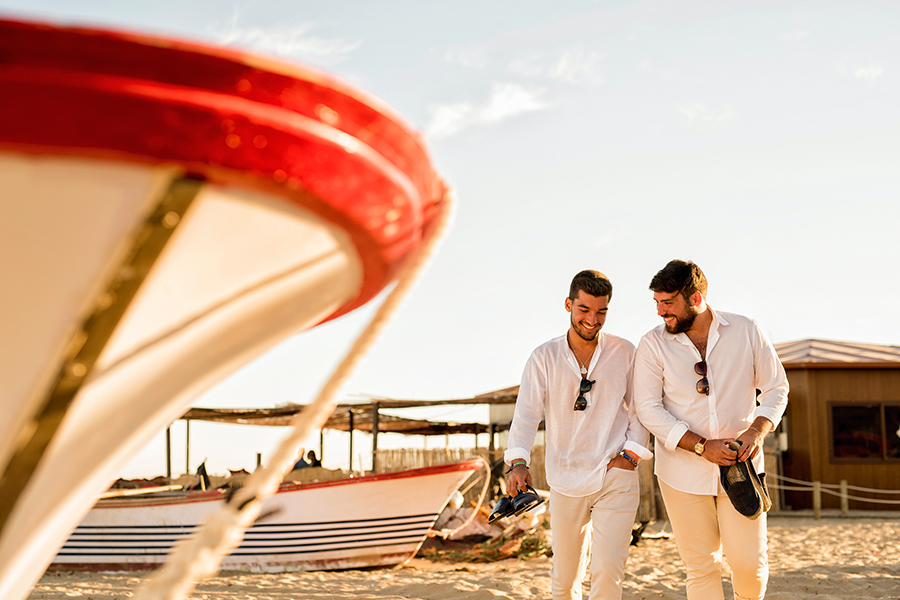
7. Can My Partner and I Show Public Displays of Affection in Africa?
When visiting South Africa, yes, you and your partner are safe to show public displays of affection. But when in any other African country, especially ones with anti-LGBTQ laws, it’s strongly advised to avoid any public displays of affection when around locals – even if you’re heterosexual. This is because many African cultures are conservative, deeply religious, and find PDA immoral and inappropriate.
It’s always important to remember that you chose to travel to a country and need to respect their views and customs, whether you agree or not. We understand that it’s incredibly difficult to have to do this, but it’s not only respect for other cultures, it also keeps you safe.
8. Will I Be Allowed to Sleep in the Same Bed as My Partner When in Africa?
Yes, you can sleep in the same bed as your partner – your room is a private space where no one has the right to bother you. The only situation that might arise is your accommodation providing twin beds even when booking a double bed. Lodges and camps in more conservative regions might provide you with separate beds if your documentation states that both parties are male or female.
9. Are Locals in Africa Homophobic and/or Transphobic?
Unfortunately, homophobia and transphobia are present in nearly every society around the globe – and Africa is no exception. Even in more progressive countries like South Africa, there is always the possibility of encountering a person or persons who are prejudiced. To ensure your safety and comfort at all times, it’s recommended to refrain from public displays of affection and remain discreet when around locals.
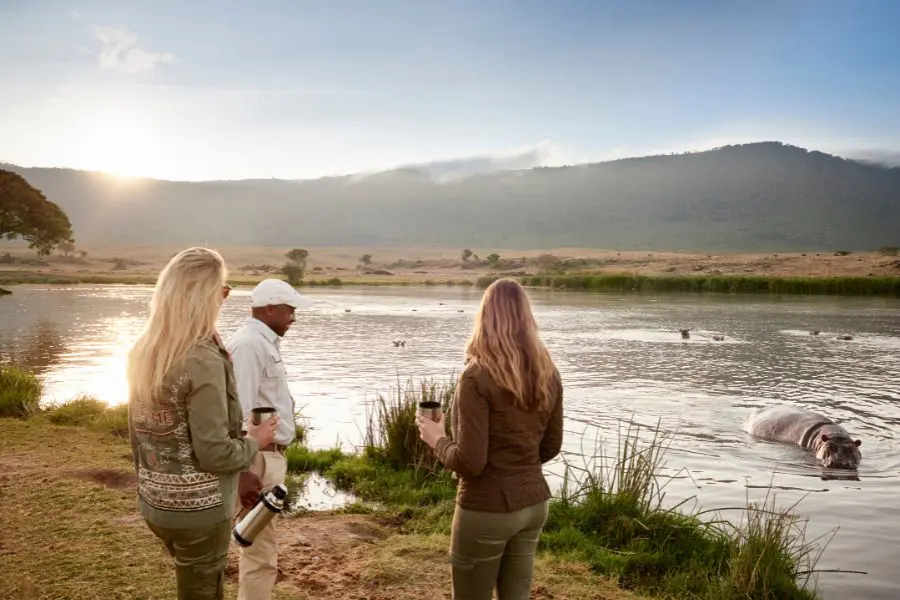
10. Is Africa a Good Option for Single Gay Travel?
One of the best aspects of LGBTQ travels is getting to meet others in the community. Cape Town and Johannesburg are vibrant hubs with fleshed-out LGBTQ scenes. If you’re travelling solo in the hopes of connecting with local gay people, these cosmopolitan cities are your best bet.
As for other African countries, it’s recommended to avoid seeking out LGBTQ communities, especially in regions with anti-gay laws. The communities in these countries tend to be underground for their protection, and trying to connect with them might put you and the locals in a risky position.
11. Are There Pride Parades in Africa?
Yes, more than you think! Cape Town Pride and Johannesburg Pride are the two major events on the LGBTQ calendar. Held annually, both these celebrations provide a safe, inclusive space for people of all ages, genders and sexualities to come together and enjoy a day of live music, DJs, drag acts, markets and more.
Since the decriminalisation of same-sex relationships in Botswana, the country’s city of Gaborone has been hosting an annual pride event to continue its support and advocation for LGBTQ rights, as well as to celebrate how far the nation has come.
LGBTQ Travel Advice for Safaris in Africa
Here are a few LGBTQ safety travel tips for you to keep in mind when travelling in Africa:
- The first thing you’ll want to do is extensive research on the local LGBTQ policies of the country you want to travel to – take the time to fully understand the lay of the land.
- When in Africa, remember that you are subject to the laws and cultural climate of the country you’re travelling in.
- Be cautious of using social media, dating apps, and visiting local LGBTQ hangouts in countries with anti-gay laws and negative public opinions.
- Generally, African cultures tend to be conservative, so it’s advised that both LGBTQ and heterosexual couples avoid public displays of affection around locals.
- If travelling with medication, ensure that your prescriptions are kept together in a separate bag in your carry-on. Keep all medications in their original containers and carry an official note of medical authorisation from your doctor.
- Make sure to research if the medication you’re bringing with you is legal in the country you’re travelling to. You will be detained if found in possession of illegal medication.
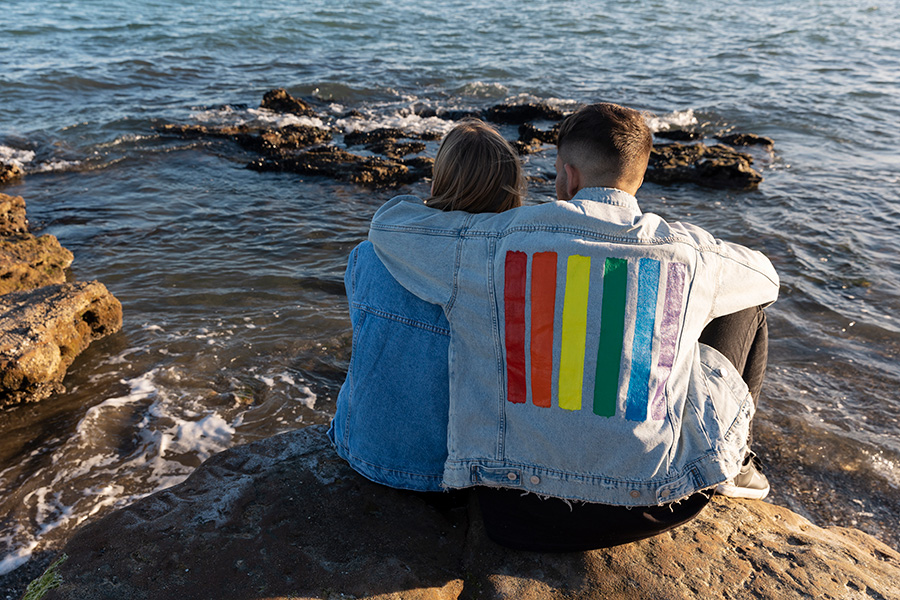

- Consider purchasing insurance that specifically caters to LGBTQ people. This is particularly beneficial for trans people who might need medical attention while on holiday.
- Certain countries in Africa may not allow you entry into the country if you present differently to your documented gender. Discuss this with your African Safari Expert and have a contingency plan in place should you not be able to exit the airport on arrival.
- Trans and non-binary people (in particular), will want to read up on their rights in the country they’re visiting.
- Find out exactly what officials are/are not allowed to request from you during security checks. And always take a witness you trust with you into the room during private screenings.
- Disclose as little personal information about yourself and always stay aware of your surroundings.
- As awful as it is, trans and non-binary people should be prepared to be misgendered, especially when in conservative regions.
- If possible, arrange to travel in a group and have a buddy with you when out and about.
Q&A With Past Go2Africa Clients
In the interest of providing a full, unbiased picture of what LGBTQ people can expect, we reached out to clients for authentic feedback.
Julia Harshberger and Scott Popkowski were kind enough to take time out of their schedule to share their experiences in Africa. Julia and her wife Sandra have travelled twice with Go2Africa, while Scott, along with his husband and two teenage sons, had their first trip to Africa with us. Both parties and their partners were understandably nervous about travelling to Africa. Here’s what they had to say:
What Made You Choose Africa as a Destination?
Julie: I have wanted to explore the continent of Africa since I was a very young child. The people, the animals, the colours, the sounds – they all spoke to my heart! For a long time, I thought I would first land on the continent as a Peace Corps volunteer. Life had other plans, and it took me several decades to finally get to East Africa. It was certainly not hard to choose Kenya and Tanzania as the first places we wanted to explore, as Sandy and I are huge animal lovers (both die-hard vegans), and I’d dreamed of sharing space with wild elephants for as long as I could remember.
Scott: We chose Africa as a destination to experience a safari and be able to see the stunning wildlife and landscape in person, and to create a lifetime of memories for our two boys.
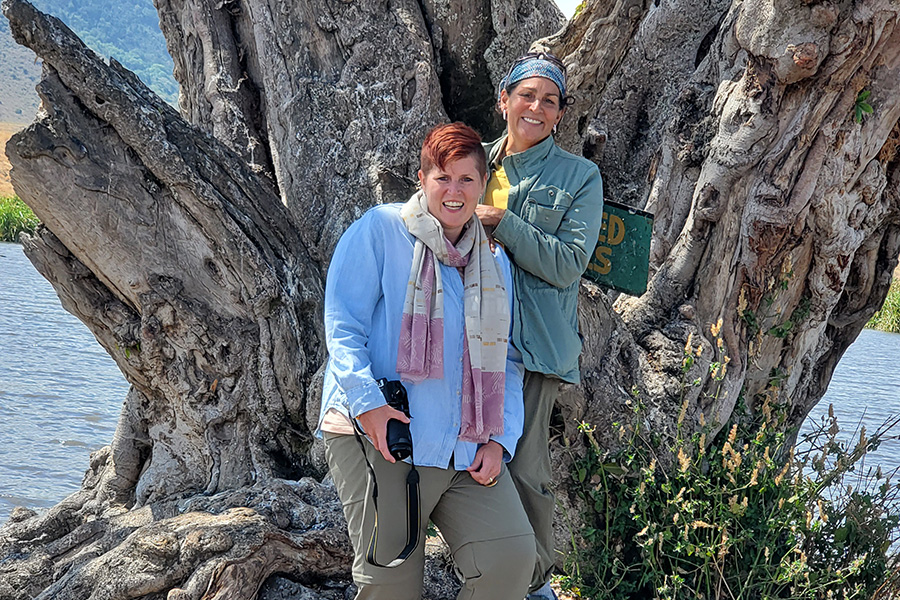

What Were Your Fears as an LGBTQ+ Person Travelling to Africa?
Julie: As lesbians, it was in the back of our minds that resident LGBTQIA+ people are persecuted in these countries just for living their authentic lives. We were aware that people may not be thrilled to have us there, but we also know they need and appreciate the money we bring as tourists.
We did discuss how to fill out our visa applications (married? single?). Ultimately, we opted for the truth – married. It was a multi-faceted decision. On the one hand, we aren’t liars, so it went against our nature to say we were “single” – and if we did, we surely thought we’d get caught in some sort of lie. So that didn’t make sense. On the other, we are supremely honoured and proud to be married – it is a right we fought long and hard to earn, as did our forefathers and foremothers. It would be a travesty to hide our relationship simply because others didn’t understand or accept it.
Additionally, we saw it as an opportunity to be “ambassadors”, if you will. We are not the kind of people who have giant PDA, however, if asked, we are always happy to tell our story.
Scott: When we were looking into Africa as a travel destination, we were more concerned about travelling as an LGBTQ+ family. The concerns would not have been as great if the trip did not include our two teenage sons. Parts of Africa are known for having very negative views of LGBTQ+ persons. So negative in fact, that there are laws against being gay.
Our concerns centred around the possibility of issues at customs, possible harassment, feeling uncomfortable at camps/lodges/hotels and just the overall feeling that Africa really did not want that ‘type’ of person there. So, why would we consider spending so much of our hard-earned money to travel to a place that despises LGBTQ+ persons? In addition, the United States government had issued numerous travel warnings for LGBTQ+ people travelling within certain parts of Africa which made it even more unsettling.
What Was Your Overall Experience While Travelling?
Julie: Our first trip (Kenya, Tanzania, and Zanzibar) was incredible! On a scale of 1 to 10, we’d give it a solid 10. People were kind and welcoming and non-judgemental. It goes without saying that the wildlife was OVER. THE. TOP. MIND-BLOWING!
Our second trip, to Uganda, was very different. On the same scale, we would give it a 6. The wildlife encounters (mountain gorillas, golden monkeys, chimpanzees, and elephants/lake tour) were a 10! [Even though overall it wasn’t a 10] we still really enjoyed ourselves in Uganda. We had remarkable encounters with wildlife, we met some truly incredible locals who were happy to share their world with us, and we made countless memories. If Uganda was the first place we’d ever visited on the continent, I’m sure it would have received a higher score. But after the warm reception and phenomenal time we had on our first trip, it’s hard not to compare them.
Scott: Our overall experience while travelling in Africa was wonderful. The people, the safaris, the culture, going through customs, everything felt comfortable and without any feelings of negativity towards our family.
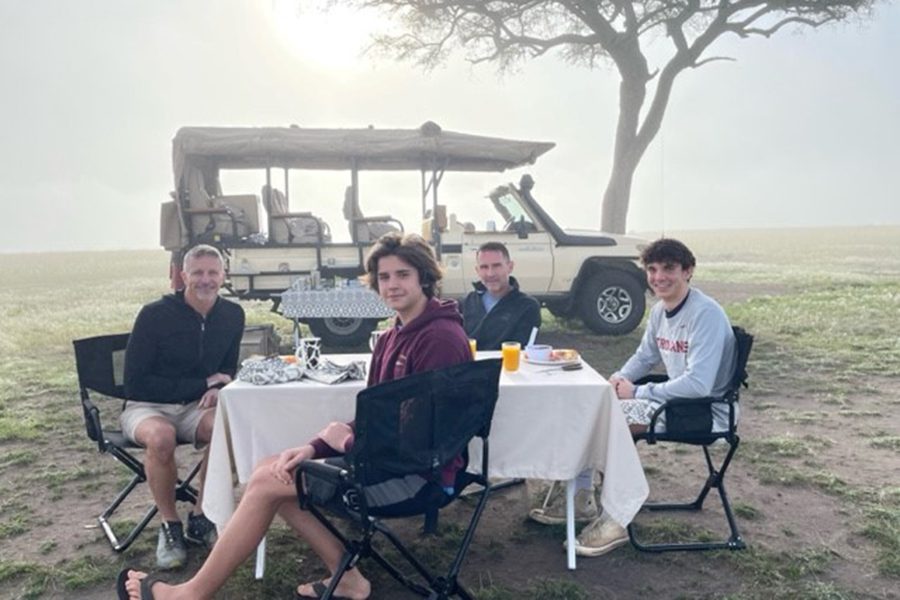

Did You Face Any Issues or Problems While Travelling in Africa?
Julie: [On our trip to Uganda] Almost every place we stayed had us in single beds. If we pushed them together, they would be separated the next morning. People were polite, but not as engaging as our first trip. It was hard to determine whether this was due to a cultural norm or some homophobic aspect.
Additionally, we didn’t feel a great connection with our driver-guide, Michael. This was really unfortunate, because we feel like we missed out on so much. He didn’t engage us on our drives or explain what we were seeing along the way, and it felt like he was only speaking about things once we inquired about them.
Okech, on the other hand, did a lovely job pointing out interesting sites, birds, etc, and provided us with local facts and history as he drove us to see the Shoebill on our first day. Also, it felt like Michael was ‘setting the tone’ everywhere we went. People would be courteous, but not really engaging with us in a manner we were accustomed to on our first East African Adventure. Was this because we are lesbians? Or something else? It’s hard not to assume it’s the former.
Scott: We did not face any issues or problems while travelling in Africa.
Did You Feel Safe Throughout Your Trip?
Julie: We always felt safe, no matter where we went, regardless of the fact that we are two women traveling alone or because of our sexual orientation. In fact, I would go so far as to say there are parts of our home country (USA) where we feel less safe than we did anywhere in Africa.
Scott: There, of course, was a bit of trepidation leading up to the trip and when we arrived in Nairobi. But after that our family felt completely safe throughout our trip in Africa.
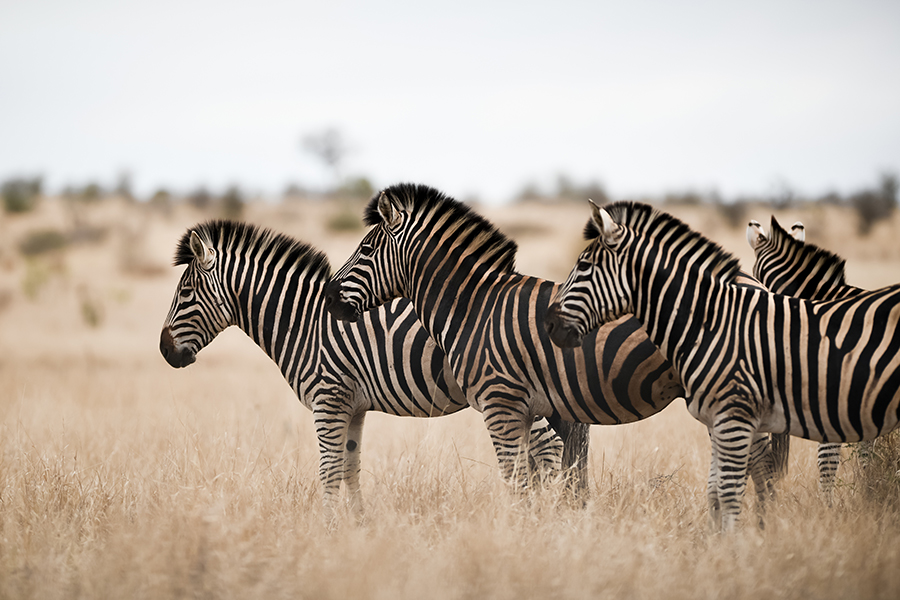

Would You Come Back to Africa?
Julie: We absolutely want to return to Africa! There is still so much we want to see and do! Madagascar, South Africa, Morocco, just to name a few. And I would love to return to Kenya and visit with the ‘blanket brigade’ at Sheldrick Wildlife Trust again!
We truly hit the lottery when we booked with Emma Hill/Go2Africa! Emma really set herself apart from other travel agents we’d contacted by asking the deeper questions about who we are and what is important to us. And then she delivered – tenfold (on both trips!). All of our activities, our lodging, was spot on. The travel arrangements with the countless airport transfers, etc, was a smooth, choreographed dance that Emma designed and was implemented flawlessly.
Scott: We would not hesitate to come back to Africa, and we know many other LGBTQ+ families that are very much interested in African travel as well.
Is There Anything Else You Would Like To Mention About Your Time in Africa?
Julie: It is not lost on us that as a female couple we very likely have a much easier time traveling in more traditional homophobic countries. That being said, we are smart about the places we travel – we don’t go looking for queer nightclubs, we don’t engage in PDA, and if we’re out late it’s with an arranged experience/tour where we have a private driver, etc.
One thing of note that we would be remiss if we didn’t share: shortly after returning from Uganda, they passed the Uganda Anti-Gay Bill – which carries (in some instances) the death penalty. As tourists, we don’t feel threatened by this bill (mostly because we feel it is targeting gay men and because they want and need our tourist dollars). But we will not return to a country that has such a violent, hostile law that targets our people.
We have the luxury of choosing not to visit – residents, on the other hand, are stuck living in the shadows of such hate. And we will find ways to support LGBTQIA+ people in Uganda – because of this law.
Scott: Our time was amazing in Africa. We had some bumps in the road in the beginning with my getting Covid on the morning of our flight, but Go2Africa was amazing at working everything out for us. It was an incredible adventure that our family will never forget.
What Our Africa Safari Experts Have To Say
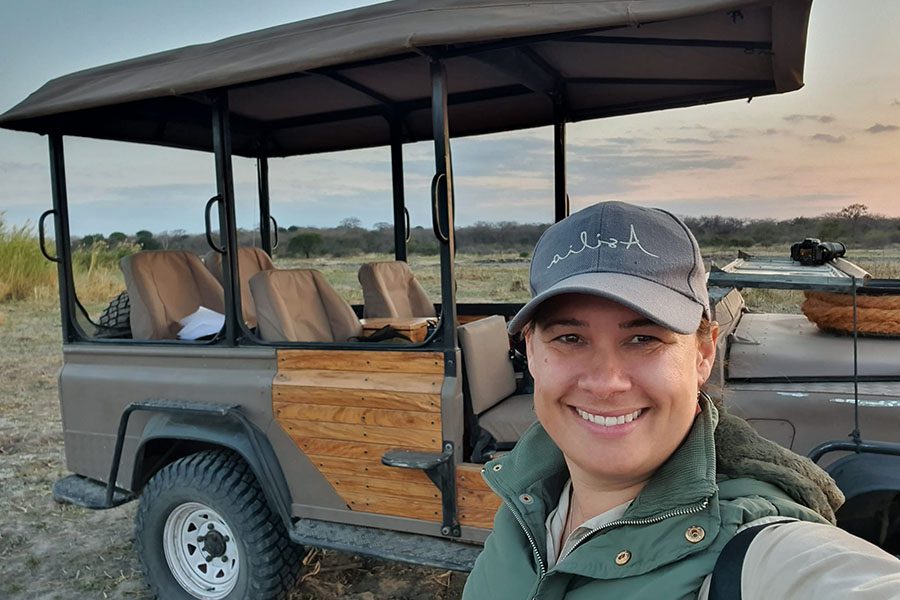

As a travel professional, I embrace the challenges that arise when working with clients who have valid concerns about traveling to unfamiliar territories, whether that is families with young children, LGBTQ community or solo travellers. Nervousness is natural, especially when exploring new horizons. However, through open communication, sharing information, and fostering a trusting relationship, we overcome those barriers together. It brings me immense joy to create remarkable experiences for all my clients, including my LGBTQ+ travelers, and I cherish the opportunity to work with them.
– Emma Hill, Africa Safari Expert
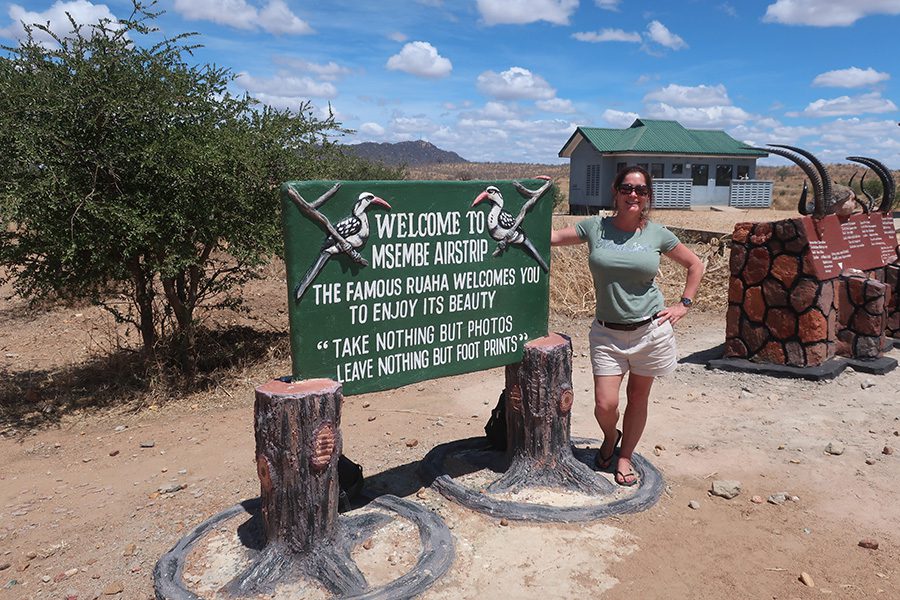

I always tell my clients that East Africa is more conservative than other safari destinations and it’s best to be aware of that, but this applies to everyone. I would just as easily tell a honeymoon couple to watch their public displays of affection as I would the LGBTQ+ community. Within the lodges and resorts, you can be more relaxed about it. I’ve never had any type of issues from any lodge or camp that any of my clients have visited – not once in my 14 years of planning these kinds of trips. Kenya is a safe destination for the LGBTQ+ community, go adventure!
– Lauren Johansson, Africa Safari Expert
Ready to Experience LGBTQ Travel in Africa?
Contact our Africa Safari Experts to start planning your adventure. With over two decades of experience and knowledge, we are professionals in crafting tailor-made itineraries that are sure to be the trip of your dreams.

